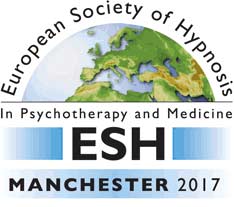
Zoltan Dienes
After completing his PhD at Oxford University, Zoltan's first lectureship was at the University of Sussex in 1990, where he has been ever since. He has published two books and over 100 scientific papers on the distinction between the conscious and unconscious, computational modelling of learning, catching cricket balls, and more recently on hypnosis, and the use of Bayesian statistics as an alternative to significance testing. He has been running active research lab into hypnosis since 2007, where hundreds of people are screened for hypnotisability each year. Currently he is supervising two PhD students on hypnosis research, one of them (Peter Lush) is investigating the issues discussed in the talk, and the other (Gyrgy Moga) will investigate the psychopharmacological distinction between analgesia produced by hypnosis, mindfulness, placebo and CBT.
Hypnosis as self-deception; Meditation as self-insight
A theme among many theories of hypnosis is that hypnotic response is a form of strategic self-deception about what mental state one is in (e.g. Dienes & Perner, 2007; E. R. Hilgard,1977; Spanos, 1986). Specifically, hypnotic responding involves having executive intentions while not being aware that one has those intentions. By contrast, a theme for many meditation practices, Buddhist as well as some non-Buddhist, is that they involve and cultivate mindfulness; and mindfulness, where it succeeds, involves being aware of the mental states one is in with accurate higher order thoughts. Thus, by this argument,hypnotic response implies a lack of mindfulness, at least for those particular mental states about which one is strategically deceived. This talk will consider the argument, its strengths and weaknesses, and present new empirical evidence for a tension between hypnotic response and mindfulness, using, amongst other things, the Libet paradigm to look at awareness of intentions.




